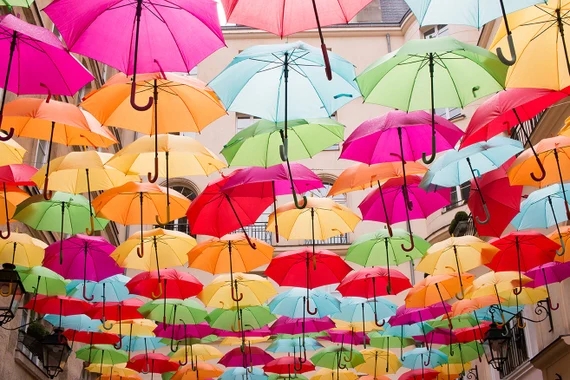There is a word that was in the news a lot last week – including the Conservative conference in Manchester, in the Scottish courts, and reports about several women’s sports. The word is is the noun/adjective/prefix – trans. But what does trans mean, in particular when it relates to people?
For many it means transsexual, a small number of men (or women) who live as the opposite sex from the one they were born into. Images of Jan – formerly James – Morris, Caitlyn Jenner, who is happy to be remembered as the Olympian gold medallist Bruce, and film star Elliot Page, may come to mind. But Stonewall, a charity that lobbies for trans rights, and a number of other organisations, talk about about the ‘trans umbrella’ of terms that further define what it means to be trans.

This umbrella still includes transsexual, though it is seen by some, including possibly Page, as an outdated term. Here is a far from exhaustive list of other terms gleaned from the many such umbrellas you can find in a quick Google search: transgender, gender queer, non-binary, gender variant, cross-dresser, genderless, agender, third gender, bi-gender, trans man, trans woman, trans masculine, trans feminine, neutrois, omnigender, graygender, eunuch, pangender, neurogender, man/woman of trans experience, demi boy/girl, sister girl/boy, demigender, aporogender, androgyne, pangender, polygender, intergender, trigender, multigender, maverique, two spirit, transvestite, intersex, genderflux, drag king/queen, gender non-conforming, hijra, fa’afafine, gender questioning. Many of the terms are not understood beyond the person describing themselves as such and their associates. Many categories are also fluid.
Not everyone is happy to be brought under this umbrella, including men and women who have rare differences in sex development (DSDs), often inaccurately described as ‘intersex.’ Mostly these people live as the sex that was recorded at their birth. Many ‘two spirit’ people, who are members of the indigenous population in Canada, also reject being under the trans umbrella. The Samoan ‘third gender’ fa’afafine always play in male teams if into sport.
This broadness of the trans definition, as it has developed over the last decade or so, maybe a surprise to many. And the push for self-identification that got the former Scottish First Minister into difficulty, as she tried to support self ID whilst also saying that a newly trans-identifying male rapist, whose initial incarceration in a woman’s prison caused uproar, was ‘not really trans,’ may have added to the confusion.
Around 48,000 men identified as women in the 2021 census in the UK, although there is some dispute about the accuracy of this statistic owing to the ambiguity in the wording of the census question. Only about 5,000 have a gender recognition certificate (GRC) that says they are legally the opposite sex, apart from some exclusions covered by the Equality Act 2010 and the GRC itself. About 95% of trans identifying males retain full male genitalia.
That the range of definitions for the word trans keeps changing shouldn’t be surprising as language, like societies, evolve, though not usually quite so quickly. But it can be confusing, even for those of us who try to keep up. A recent – rather good – book was written by an author who has self described as a ‘queer femme girl.’ Not as it happens an additional trans definition. A friend tells me that this means a female who likes to dress in a feminine way. I suppose it sounds more edgy than calling yourself a ‘woman’ – especially when you’ve got a book to sell …
Note: The Collins dictionary definition of trans = prefix (originally Latin) meaning across/through/beyond.
Links to my books and social media
You can find all my books and short stories on Amazon books, At least one story always free. ALL BOOKS FREE ON KINDLE UNLIMITED
